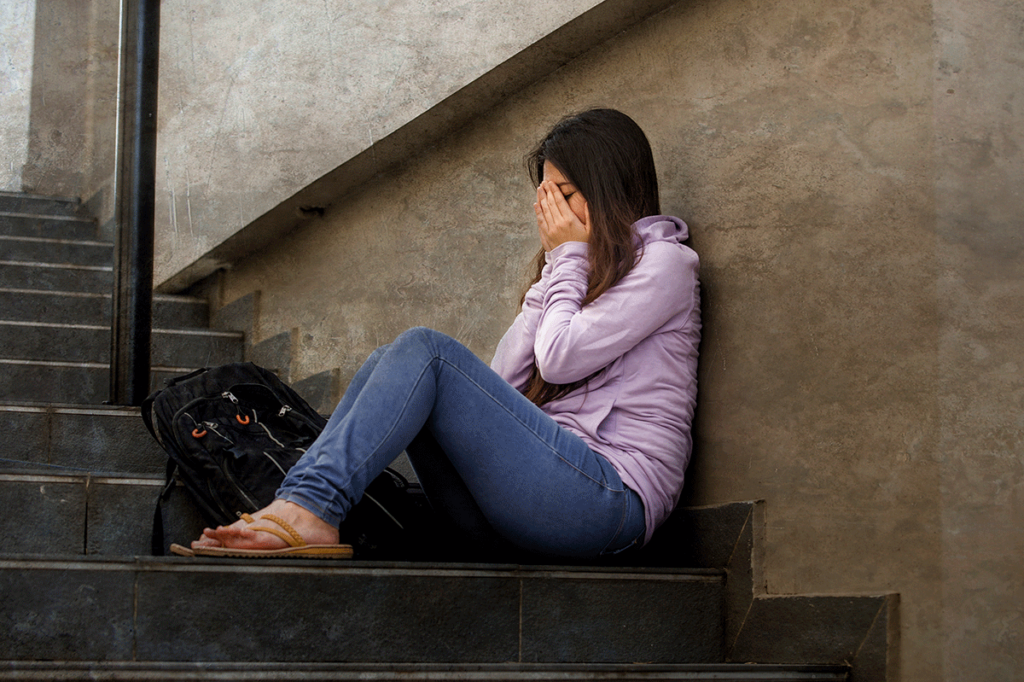Anxiety is a normal part of growing up. It’s common for teens to feel anxious about school, friendships, family, or the future. But when those feelings of worry and fear become overwhelming, it may lead to an anxiety attack. For teens, anxiety attacks can feel frightening and hard to control, often coming on suddenly.
Recognizing the signs of an anxiety attack can help teens manage their symptoms and get the support they need. At Honey Lake Clinic, we provide specialized teen anxiety treatment designed to address the unique challenges teenage girls face when coping with anxiety. If you’ve ever wondered whether what you’re feeling might be an anxiety attack, knowing the key symptoms can make all the difference.
Signs of an Anxiety Attack in Teens
1. Rapid Heartbeat
A racing heart is one of the most common anxiety attack symptoms in teens. You might feel your heart pounding in your chest, even without checking your pulse. This sensation can be alarming and may feel like your body is preparing for a fight-or-flight response.
2. Shortness of Breath
Teens experiencing anxiety attacks often find themselves short of breath. You may feel like you can’t breathe deeply enough or that there’s a weight pressing down on your chest. This can be scary and make it even harder to calm down.
Tip: If you notice these first two signs, focusing on intentional breathing can help. Practice slow, deep breaths: inhale through your nose for five counts, then exhale slowly through your mouth. This can help calm your nervous system and slow your heart rate.
3. Stomach Tightness
Feeling a tight, knotted sensation in your stomach is another common anxiety attack symptom. This tension is similar to what you might feel in a fight-or-flight situation, and it can make you feel physically uncomfortable in addition to your emotional distress.
4. Dizziness, Tingling, or Changes in Blood Pressure
During an anxiety attack, teens might experience dizziness, lightheadedness, or tingling in their hands, arms, or feet. These sensations are often caused by changes in blood pressure, which can make the anxiety feel even more overwhelming.
5. Feeling Out of Control
One of the most challenging anxiety attack signs is the feeling that you’re losing control. You might feel like you can’t manage your emotions or stop the physical sensations, which can make the attack feel more intense.
6. Chills or Sweating
Teens having an anxiety attack may experience chills, shivering, or unexpected sweating in their hands, arms, or face. These physical symptoms are part of the body’s response to stress and anxiety, often leaving teens feeling uncomfortable and vulnerable.
7. Muscle Tension
Tightness or tension in the neck, shoulders, and back is common during anxiety attacks. Many teens mistake this tightness for something more serious, like a health issue, which can add to the anxiety and make the attack worse.
Grounding Exercises for Teens Experiencing Anxiety Attacks
Grounding exercises can help bring you back to the present and calm your mind during an anxiety attack. These techniques focus on using your senses to reconnect with the world around you. Here are a few exercises to try.
5-4-3-2-1 Grounding Technique
This exercise helps people focus on their surroundings rather than their anxious thoughts. To begin, identify:
- 5 things you can see
- 4 things you can touch
- 3 things you can hear
- 2 things you can smell
- 1 thing you can taste
Progressive Muscle Relaxation
This technique involves tensing and then relaxing each muscle group, starting from your feet and working your way up. This can help relieve muscle tension and reduce the physical discomfort associated with anxiety attacks.
Deep Breathing
Focusing on your breath can help slow your heart rate and calm your nervous system. Try inhaling through your nose for five counts, holding your breath for a moment, and then slowly exhaling through your mouth.
Reach Out Today for Teen Anxiety Treatment at Honey Lake Clinic
If you recognize these anxiety attack symptoms in yourself or someone you care about, know that help is available. Teens don’t have to face anxiety alone. At Honey Lake Clinic, our teen anxiety treatment program is designed to help young people manage their symptoms and regain control over their lives.
Our experienced team offers a holistic, faith-based approach that addresses the physical, emotional, and spiritual aspects of anxiety. With the right tools and support, teens can learn how to manage anxiety and live a fulfilling life. Contact Honey Lake Clinic today to learn more about our teen anxiety treatment program. Call us at 888.428.0562 or connect with us online.
